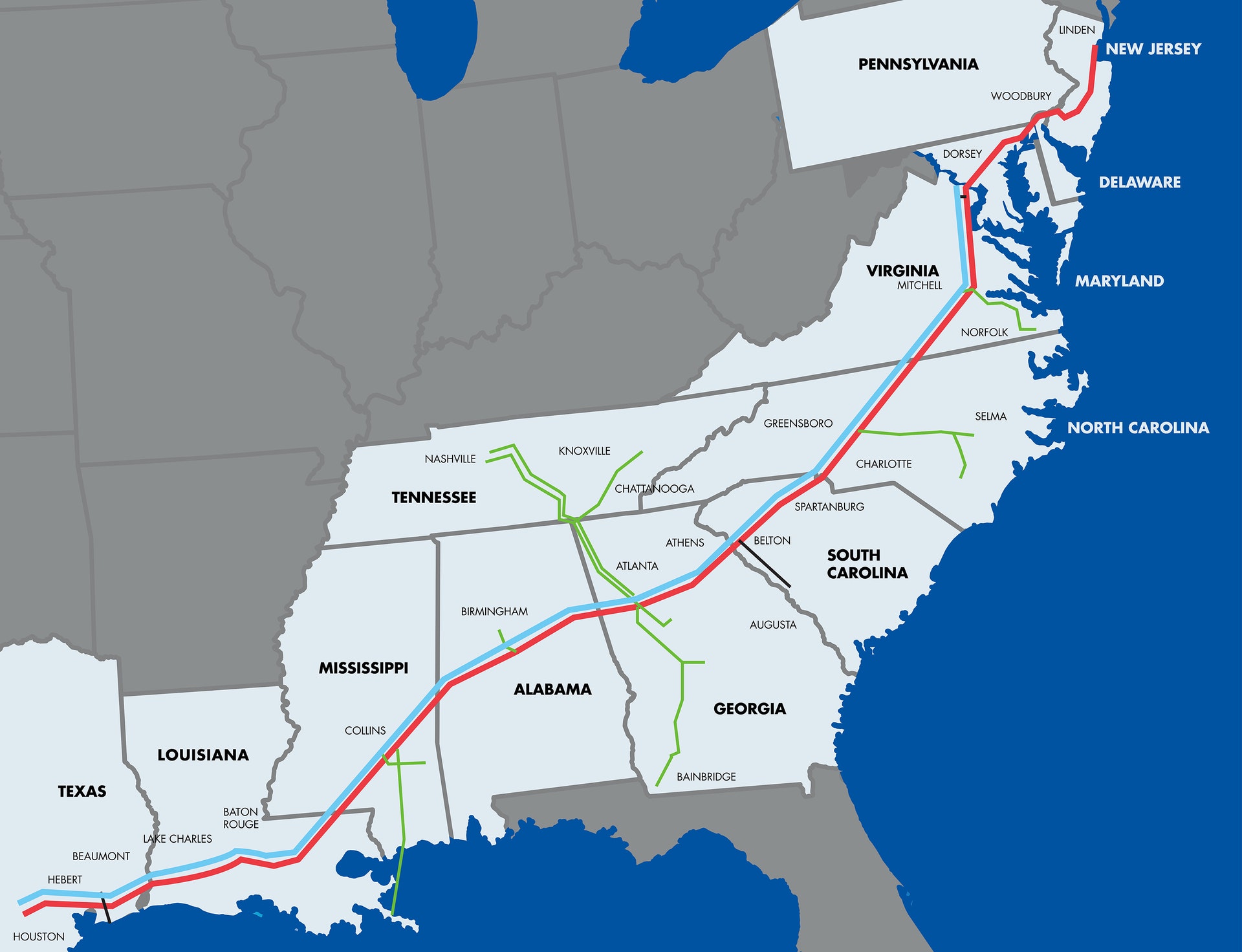Hackers Say They're Seeking Cash as Top US Fuel Pipeline Down for 4th Day
NEW YORK (Reuters) -- A group of cybercriminals allegedly responsible for the ransomware attack that shut the largest fuel pipeline in the United States said on Monday it only wants to make money, not disrupt society, as Washington scrambled to help restore the network.
The pipeline, which is America's biggest gasoline pipeline, is unlikely to resume significant operations for several days due to a ransomware cyberattack that Washington on Monday blamed on a shadowy criminal network called DarkSide.
The attack on the Colonial Pipeline between Houston and New Jersey, which provides nearly half the fuel to the U.S. East Coast, is one of the most disruptive digital ransom schemes ever reported.
The privately owned company on Monday said it was working on re-starting in phases with "the goal of substantially restoring operational service by the end of the week."
The hack triggered worries of retail gasoline spikes and laid bare the vulnerabilities of U.S. energy infrastructure to hackers.
The FBI on Monday pinned the blame on the cyber group DarkSide. A statement in the group's name said "our goal is to make money, and not creating problems for society." Its statement did not mention Colonial Pipeline by name.
DarkSide could be based in Russia or Eastern Europe, according to experts, because its ransomware is rigged to avoid encrypting computers set to use Russian, Ukrainian, Kazakh, or other language keyboards associated with the former Soviet republics.
Ransomware is a type of malware designed to lock down systems by encrypting data and demanding payment to regain access. It is unknown how much money the hackers are seeking, and Colonial has not commented on whether it would pay.
Since the incident, U.S. lawmakers have urged stronger protections for critical energy infrastructure.
The White House also has made restarting the fuel network a top priority and has organized a federal task force to assess the impact and avoid more severe disruptions.
PUMP PRICE FEARS
On Sunday, Colonial said it restarted some smaller lines between fuel terminals and customer delivery points but its main lines between Houston and the U.S. Northeast remained shut. It did not provide a timeline for a full restart of the 5,500 mile (8,850 km) system.
"While this situation remains fluid and continues to evolve, the Colonial operations team is executing a plan that involves an incremental process that will facilitate a return to service in a phased approach," it said.
Fuel demand in the southeastern United States has already picked up. Gas stations in states such as Georgia, North Carolina and Tennessee were seeing some abnormal buying, fed by demand fears, said Patrick De Haan, head of petroleum analysis at GasBuddy.
That region would likely be the first to see pump price increases because it is the most dependent on the line and has fewer alternative supply sources than states further north.
The American Automobile Association said the national gasoline price average climbed 6 cents on the week to $2.96 a gallon, the highest since May 2018.
The Department of Transportation announced emergency measures on Sunday to facilitate deliveries, lifting driver restrictions on fuel haulers in 17 states affected by the shutdown. It could take additional measures if the outage continues.
U.S. fuel traders have provisionally booked at least six tankers to ship gasoline from Europe to U.S. destinations following the attack.
Colonial's pipeline system moves over 2.5 million bpd of gasoline, diesel and jet fuel, supplying motorists and major airports.
Hartsfield-Jackson International in Atlanta, the busiest airport in the country, expects the outage to be resolved before any impact on flights, a spokesman said.
An alternative, smaller conduit that serves the same region has already filled. Kinder Morgan Inc's 720,000-bpd fuel pipeline had been working with customers to take on additional volumes since Friday and reached full capacity for May on Sunday, a spokeswoman for the company said.
If the disruption stretches on, fuel suppliers would need to use trucks and rail to transport fuel to compensate.
Marathon Petroleum, the largest U.S. refiner, said it can meet its supply commitments for now but is working to find alternative ways to ship motor fuels to the eastern United States.
Related News
Related News

- Keystone Oil Pipeline Resumes Operations After Temporary Shutdown
- Biden Administration Buys Oil for Emergency Reserve Above Target Price
- Freeport LNG Plant Runs Near Zero Consumption for Fifth Day
- Enbridge to Invest $500 Million in Pipeline Assets, Including Expansion of 850-Mile Gray Oak Pipeline
- Williams Delays Louisiana Pipeline Project Amid Dispute with Competitor Energy Transfer
- Evacuation Technologies to Reduce Methane Releases During Pigging
- Editor’s Notebook: Nord Stream’s $20 Billion Question
- Enbridge Receives Approval to Begin Service on Louisiana Venice Gas Pipeline Project
- Russian LNG Unfazed By U.S. Sanctions
- Biden Administration Buys Oil for Emergency Reserve Above Target Price





Comments